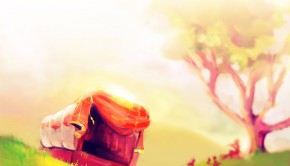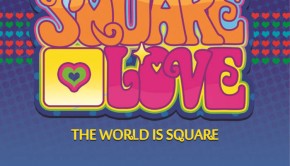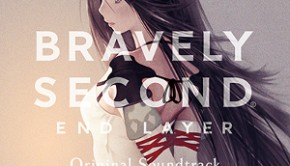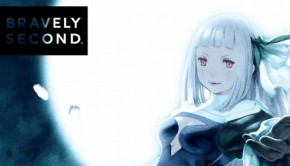Bravely Default 2 Original Soundtrack
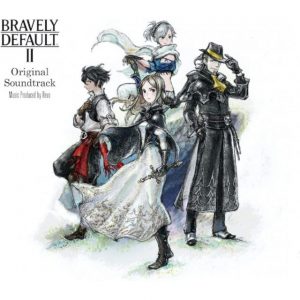 |
Album Title: Bravely Default II Original Soundtrack |
| Record Label: PONY CANYON |
|
| Catalog No.: PCCA-06024 |
|
| Release Date: March 03, 2021 |
|
| Purchase: Listen on Spotify |
Overview
Square Enix’s recent foray into modernized retro JRPGs has left us with a new line of great soundtracks, starting with Revo’s original score to Bravely Default and ending most recently with Akira Senju’s work on the upcoming Project Triangle Strategy demo game (official title TBA). Bravely Default II marked Revo’s return to the games since his original soundtrack, which has been a phenomenal success since it’s release, and marked several new trends in JRPG scores. How does the sequel measure up?
Body
Before I start, I want to mention that while I usually prefer to avoid comparisons in my reviews, I am going to be drawing a lot of parallels from this soundtrack to the original Bravely Default score, not just because this soundtrack is a direct sequel, but because the music itself seems to have been written with an awareness of its legacy, and invite those comparisons.
The soundtrack starts with “Another Overture to Hope,” a soft acoustic guitar version of what has become the series’ main theme. Over the course of the track, other instruments are slowly added until it becomes a full orchestra, and it finally dies down again at the loop back into guitar. It’s a lovely rendition of a theme that’s already pretty strong, and segues nicely into “A Crystal’s Radiance and Wind’s Revelation”, a slightly amped up version of the crystal theme from the first game. There’s a few extra lines of melody and accompaniment that I enjoyed, but for the most part, it’s not too different from the original.
One of the big changes of Bravely Default II’s score is the introduction of theme variations; unlike the first game, where there was one normal overworld theme, one asterisk (a unique type of boss) theme, one crystal theme, and so on, Bravely Default II has variations of each of the normal themes to match different areas. This approach has some benefits and drawbacks in the score – on one hand, there is no equivalent to the powerful “Land of Light and Shadow” from the first soundtrack. Instead, “Grassy Horizons” is an airy melody that plays around with the main theme of the series in a much lighter fashion. However, this also allows Revo to play with the theme much more freely over the course of the score – which he does extensively.
Any JRPG player could listen to one of the overworld theme variants, and immediately identify what it’s supposed to accompany. When listening to “Snowy Horizons”, you would not need the title to know that it’s the ice world variant of the theme. Similarly, “Desert Horizons” is the desert version. Some of these are a little more successful than others – I loved “Snowy Horizons”, and “Woodland Horizons” distorts the melody with a new key and some echoing reverb for a thoroughly mystical effect, while “Desert Horizons” just slapped the theme on a harmonic minor scale, which felt a little uninspired.
Of course, with each new area comes a new town theme. I found these to be hit-or-miss; “Home of the Spring Breeze” is the first town theme, and is pleasant enough; it’s neither revolutionary nor bad, but what you’d expect from a starting town. “An Oasis in a Desolate Desert” was one of my least favorite themes; while on its own it may have worked, to me it felt like a much weaker rehash of “The Land of Sand and Its Great Clock” from Bravely Default, but without the mechanical ticking that distinguished the latter as a unique desert theme. As is, I found this town theme to be forgettable. “Remote Village” also didn’t do much for me; it felt a little bit like a phoned-in snow theme in the midst of some much more developed music.
“Scholar’s Haven” is a mournful theme that combines a clarinet with a series of woodwinds, percussion, and guitar to create some wistful harmonies, and “The Snowbound Land” is one of my personal favorites, using a mix of organ, bells, and flute in a beautiful arrangement. “Seat of the Empire” and “Mag Mell, the Fairykind’s Sanctuary” are perhaps the two best town themes on the album, with the former bringing some vibrant Eastern European vibes to the album, and the latter adding some more plucked strings in one of the best melodies in the score.
The dungeon themes are also memorable additions to the score. The first dungeon theme, “For Instance, Ruins that Time Forgot”, features an oboe playing a melancholy theme, which was left in my head long after I had stopped listening to the piece. “For Instance, A Dense and Stately Wood” features the same oboe, this time paired with a flute, in a new melody that builds slowly over the course of the piece. Most of the dungeon themes are slower or more thoughtful, but a few contain a little more snap; “For Instance, a Building Steeped in Animosity” is much more animated and lively, and “A Ship Soaring the Skies of Conquest” injects even more energy into a piece that is just a whole lot of fun to listen to.
Of course, it wouldn’t be a Bravely Default score without some heavy-hitting boss themes; this is one area of the score that is entirely successful. The original game came with some powerhouse battle themes like “And This Person’s Name Is…” and “The Snake That Devours the Horizon”; I had no idea how a sequel would be able to live up to those themes. Fortunately, we have multiple boss themes that work very well. Additionally, Revo took the Yasunori Nishiki approach to his boss themes, creating special lead-ins for each theme – I so wish this was something that became standardized in future JRPGs, as I don’t think I will ever get tired of how stylish they are. (In Revo’s case, his lead-ins are based on the boss theme rather than the character theme, but I still appreciate the effect.)
“An Unavoidable Confrontation that Leads to Battle” is a simple and tense lead-in to the first boss theme, “Battle with those Learned of the Stars”, which introduces the asterisk theme. This is actually not the first time we hear this theme on the album – “Those Learned of the Stars” plays the same melody in the style of a character theme rather than a boss fight. But I’m so glad we have the melody in boss fight form – the melody shows up through an energetic electric guitar that immediately sets a vibrant stage for the boss fights.
That’s not the only boss fight theme, though – on this album, we also have “Villains”, the lead-in track to “Battle with Villains”, which has a brand new set of instrumentation not yet heard on the score. These tracks are packed with rasping electronics, electronic organ, and very faintly accompanied by a wild and dissonant piano in the background. This track is a total blast, and very different from what you may have come to expect if you’ve been listening to the soundtrack in order.
“The Shadow of Conquest” is the next lead-in, and begins a series of tracks across the score that use the same melody in increasingly dramatic iterations. While the lead-in uses snare to keep the track measured and militaristic, “A Glimmering Bastion in the Shadow of Conquest” is the subsequent battle theme that takes it to a new level. It’s an exhilarating theme and is one of the highlights of the album; however, it’s soon followed by “The Hellblade Conqueror”, which dials the same theme up to 11 with light choral hits, extended sections, guitar screams, you name it. The piece is six minutes of Revo goodness – when I first heard it, that was when I was comfortable that this soundtrack would stand up to the original pretty well.
The final battle themes are also excellent, although I’ll always admit to some bias when it comes to harpsichord-infused themes. “The One Who Soars in the Darkness of having Longed, Leapt, and Soddenly Fallen” is the first of a series of final boss themes with a fast-paced melody steeped in harpsichord. Sections of the melody are a darker version of the “Mag Mell” town theme, although it’s stylized enough that the comparison may not be obvious on first listen; additionally, it’s much more developed, and leads into multiple new sections that we have not yet heard on the score. (Surprisingly, one of those new sections includes a brief nod to “Wicked Flight” from Bravely Default, which was a delight to come across.) The boss theme returns in “The Dark Puppet ~ Knowledge Fallen to Darkness”, this time in a more sinister fashion with mixed meter and heavier guitars; the track is also longer, which allows for more theme exploration, section changes, and counter-melodies that spice up the piece drastically.
Finally, “The Nexus Gazes into the Darkness ~ Those Who Assemble Stars in the Darkness” caps off the final battle themes. I said that I would be drawing some comparisons between this and the first game’s score in part due to the soundtrack clearly acting as a sequel score, and this was one of the tracks where that intent was apparent. Structurally, it is similar to “The Snake that Devours the Horizon”, the capstone track of the first game, and one of the best final battle themes on a Square Enix release. “Nexus” contains over seven minutes of music before we see a loop, and incorporates themes from all over Bravely Default II – previous battle themes, all four character themes, the game’s main theme, a handful of asterisk themes – mixed in with rich new melodies and instrumentation. I have to admit that the theme took me a moment to get into – mostly because the initial melody reminded me so much of Xenoblade Chronicles’ “Gaur Plain.” Once I got over that, however, I fell in love with the theme. Revo uses an operatic female soloist as the center of the piece (perhaps with inspiration from Nishiki again?), and it’s hard to articulate exactly what happens with the piece from there. It incorporates themes from all corners of the game, at some point there’s a full chorus, there’s electric guitars, the harpsichord makes an appearance, the soloist goes wild – and it all works extremely well. Revo unquestionably wrote this track with the original game’s final boss battle theme in mind, and while they’re stylistically parallel to each other, this one certainly lives up to its predecessor.
The last note I want to make is of the difference between the original soundtrack, and the Bravely Default II Original Soundtrack [Limited Edition], which currently can be purchased at CDJapan. Every track I’ve mentioned so far comes on the original score; however, because Revo made heavy use of single themes with area-based variations (not just the overworld theme, as mentioned above, but the crystal theme, a set of dungeon themes, and so on), the Limited Edition soundtrack comes with a series of medleys, with each theme being represented with all its variations in each track. For example, the first bonus track is a five-minute rendition of the crystal theme that passes through each element (fire, water, wind, earth); the second takes us through each version of the ruins dungeon theme. There are also non-medley versions of some of the theme variations that don’t appear on the regular soundtrack. For anybody who has been enjoying the original on Spotify and absolutely needs to hear every drop of music from the game, the Limited Edition is worth getting. Otherwise, it doesn’t offer too much outside of what you hear on the original soundtrack – most of the variations are slight. Personally, I enjoyed the medleys, but I wouldn’t recommend the extra expense to anybody outside of diehard enthusiasts of the soundtrack.
Summary
While not every track is a slam dunk, I barely notice due to how much I enjoy the majority of the score; I have listened to it so many times since its original release, and I’m still discovering uses of theme or instrumentation I hadn’t noticed before. It’s a musical treat that keeps delivering with every relisten. Bravely Default II’s soundtrack manages to achieve the impossible-seeming task of living up to its predecessor while feeling distinctly unique. It’s not simply a rehash of themes from the first game, but if you liked the soundtrack of the first game, you will absolutely like this one as well.
Do you agree with the review and score? Let us know in the comments below!
5
Posted on May 10, 2021 by Emily McMillan. Last modified on May 10, 2021.

